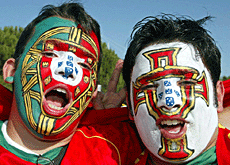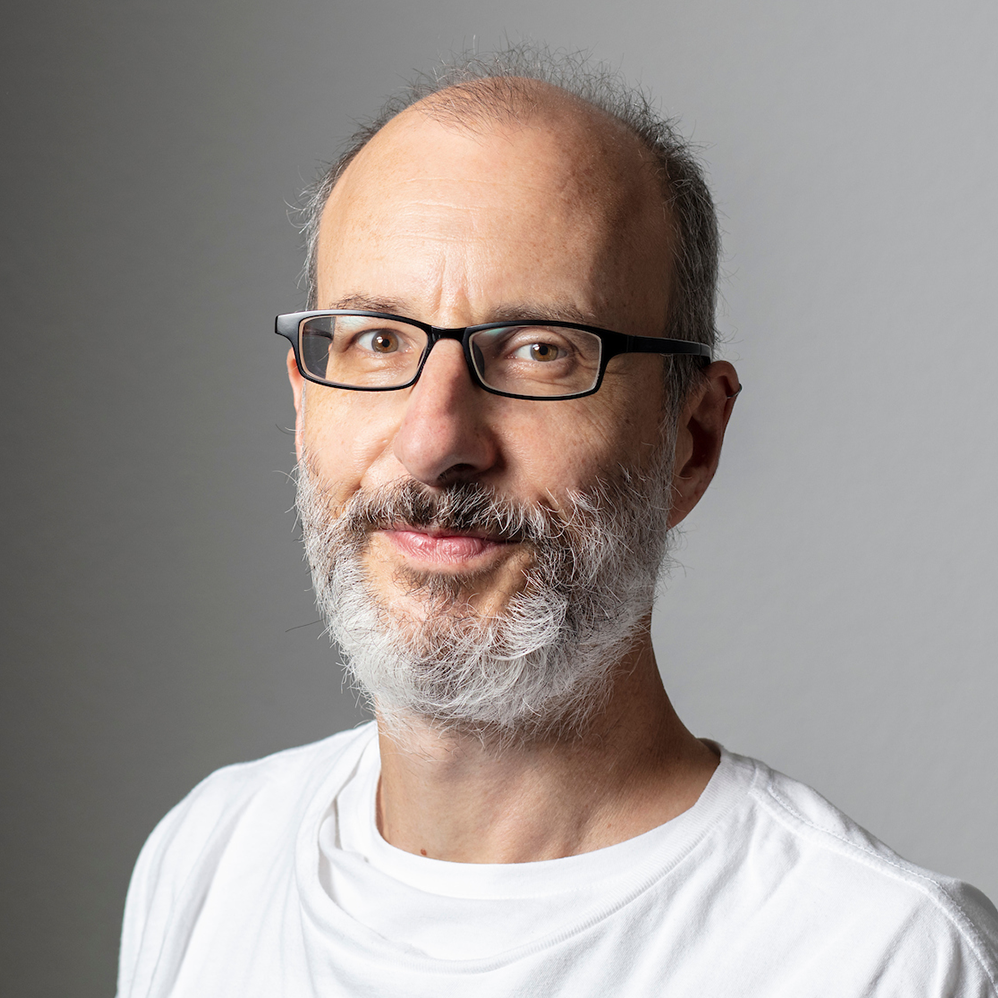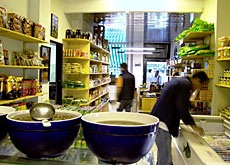Portuguese community remains close to home

Switzerland's Portuguese immigrants have brought with them a love of football as well as strong ties to their homeland.
But while many dream of returning home, there are still more Portuguese coming to Switzerland than leaving the country.
At 164,700 people, the Portuguese make up the third largest foreign community in Switzerland, after the Italians and those from Serbia and Montenegro.
“Three-quarters of the Portuguese live in French-speaking Switzerland, especially in the cantons of Vaud and Geneva,” said Antonio Da Cunha, president of the Federation of Portuguese Associations in Switzerland and professor of geography at Lausanne University.
Portuguese immigrants are fairly recent arrivals, with the first workers coming over in the 1960s to work in the catering, building and agriculture sectors.
The flow of immigrants increased significantly in the mid-1970s after the fall of the Salazar dictatorship in 1974.
Another factor was the collapse of Portugal’s colonial empire, which resulted in around 500,000 settlers returning home as refugees.
“Not all of them were able to find employment in the local economy and so many emigrated, in some cases to Switzerland,” explained Da Cunha.
Changes
Fernando Martins, the son of the founder of Switzerland’s first Portuguese restaurant – Le Portugais – in Geneva, has seen the changes reflected in his clientele. The restaurant has been open since 1973.
“Before the 1974 revolution, we had hardly any Portuguese customers in our restaurant,” he said.
“Afterwards the picture changed completely, to the point where 90 per cent of them were Portuguese.”
Large-scale immigration continued in the 1980s but started to change in character, says Da Cunha. The new arrivals were better educated and from urban rather than rural backgrounds.
Though once regarded with mistrust, the Portuguese are now well established in Swiss society. But, as with many other foreign communities, this does not mean they are well integrated.
Young people have to contend with discrimination in the job market. A high percentage of them are unemployed and it is still difficult to gain access to skilled occupations.
Invisible
Da Cunha, who is also president of the Forum for the Integration of Migrants, says the Portuguese community leads an almost “invisible existence” due to its lack of involvement in Swiss social and political life.
Some of the blame for this can be taken by the host country, says the professor. But he adds that many ex-pat Portuguese have tended to avoid contact outside their own communities.
Many limit their horizons to their families and to voluntary and sports organisations.
And some of the community’s football teams bear the names of famous Portuguese clubs, such as Benfica, Sporting or Porto – reflecting the Portuguese love of the sport and their homeland.
“These voluntary organisations reflect their attachment to their place of origin, with membership of an association representing a sort of symbolic homecoming,” observed Da Cunha.
Dream of home
Many expatriates, especially men, still dream of one day returning to Portugal. Da Cunha says women and the second-generation Portuguese are generally less keen.
But for many, returning home is not realistic. Portugal is going through a deep-seated economic crisis and more Portuguese are still migrating to Switzerland than returning to Portugal.
According to the Federal Migration Office, the number of Portuguese in Switzerland grew by almost 10,000 in 2004 – one of the highest rates of growth for an ex-pat community.
Encouraging news for Martins who may need to set some extra tables in his restaurant.
swissinfo, Luigi Jorio
In 2003 there were 164,700 Portuguese in Switzerland.
1990: 110,312.
1980: 18,943.
1970: 3,632.
The vast majority of the Portuguese community live in the cantons of Vaud and Geneva.
There are 130 Portuguese voluntary organisations in Switzerland, plus around 100 parents’ associations and many football clubs.
Portuguese folklore groups often take part in festivals and music events.
Geneva is said to be the city with the greatest density of Portuguese residents outside Portugal.

In compliance with the JTI standards
More: SWI swissinfo.ch certified by the Journalism Trust Initiative


You can find an overview of ongoing debates with our journalists here. Please join us!
If you want to start a conversation about a topic raised in this article or want to report factual errors, email us at english@swissinfo.ch.